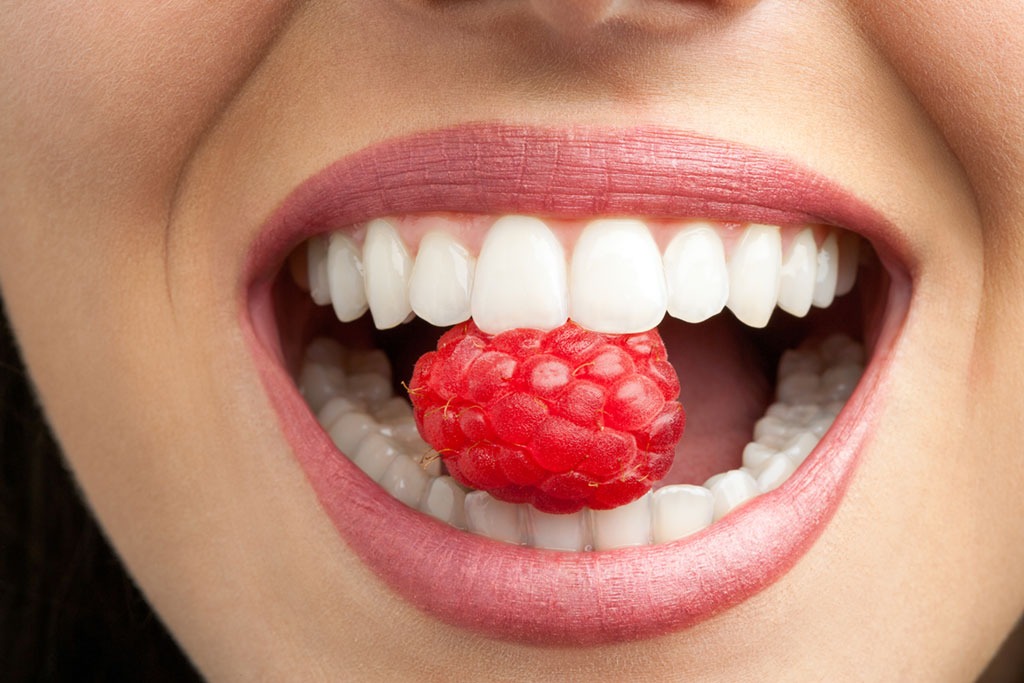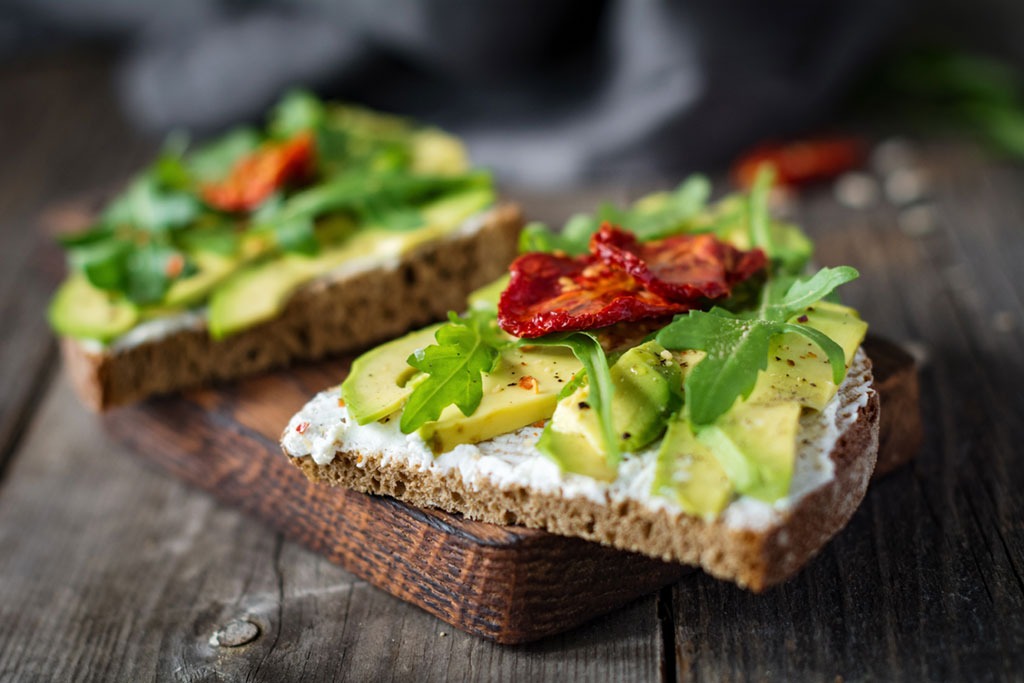By David Zinczenko July 20, 2016 (Via EAT THIS NOT THAT)
“I don’t like to get political,” said my friend Jessica a few months back. “But I’d totally vote for Megyn Kelly.”

The Fox News anchor was making headlines that week for “clearing the air” with Donald Trump, landing an interview after they scuffled at a Republican Primary debate. A few months before, she appeared on the cover of Vanity Fair. And of course she’s been in the headlines this week, joining the lineup of other women who have said they were sexually harassed by their boss, head of Fox News.
Meanwhile, she remains one of the channel’s brightest stars—and a powerhouse on social media, with 2+ million followers.
Like my friend Jessica, we here at Eat This, Not That! don’t like to get political, but we recognize a powerhouse when we see one—and we know Megyn Kelly is powered by food. In fact, Tanya Zuckerbrot, RD, the author of Kelly’s favorite diet book, F-Factor, has been a regular contributor to eatthis.com, so we couldn’t help but ask her to share her best weight loss tips and how to eat your way to a successful life, as a successful woman. Republican, Democrat, Vegetarian, Flexitarian—anyone can appreciate this essential list of the top tips for success on the F-Factor Diet, written exclusively for Eat This, Not That! by Zuckerbrot herself. And to lose even more weight, with proven advice from celebrity nutritionists and trainers, don’t miss this essential list of 50 Best-Ever Weight-Loss Secrets From Skinny People!
EAT CARBS TO LOSE WEIGHT
…BUT THE RIGHT ONES
 So often dieters cut out carbohydrates in an attempt to lose weight. But carbs fuel our bodies and cutting them out leads to you feeling tired, cranky and weak. This can trigger excess snacking and feeling deprived which is not consistent with weight loss. And yet while eating carbohydrates is essential to functioning, eating them in excess does lead to weight gain. The goal is to eat just the right amount of the right carbs. Some of my favorites include bran, low-sugar fiber cereals, apples, pears, artichokes, berries and broccoli.
So often dieters cut out carbohydrates in an attempt to lose weight. But carbs fuel our bodies and cutting them out leads to you feeling tired, cranky and weak. This can trigger excess snacking and feeling deprived which is not consistent with weight loss. And yet while eating carbohydrates is essential to functioning, eating them in excess does lead to weight gain. The goal is to eat just the right amount of the right carbs. Some of my favorites include bran, low-sugar fiber cereals, apples, pears, artichokes, berries and broccoli.
NOT JUST ANY CARBS
EAT FIBER
The F-Factor Diet is a high fiber foods program, and eating fiber is essential to success. It allows you to eat the carbohydrates necessary for energy without gaining weight. I love fiber because it’s the zero-calorie, non-digestible part of a carbohydrate that adds bulk to food. When eaten, fiber swells in the stomach. Therefore, when you follow a diet rich in fiber (like F-Factor) you feel full after eating and you’ll generally eat less throughout the day, leading to weight loss. Not to mention, fiber absorbs and removes fat and calories, and boosts metabolism!
EAT BREAKFAST
EVEN IF YOU DON’T WANT TO
Skipping breakfast slows down metabolism and leads to weight gain. Breakfast jump-starts your metabolism for the day, making it extremely important to consume. Studies show that breakfast eaters burn calories more efficiently throughout the day and are more likely to be thinner than non-breakfast eaters. In fact, sumo wrestlers in Japan aren’t fed breakfast, so that they gain weight!
Eating breakfast is key to success on the F-Factor Diet because it is an opportunity to meet up to half your daily fiber needs before noon. Examples I enjoy: high fiber cereal or overnight oats with lean protein such as egg whites, Greek yogurt, or low-fat cheeses are the ultimate combination because these nutrients will fill you up on the fewest calories and keep blood sugar stable all morning.
ENJOY FIBER AND PROTEIN AT EVERY MEAL
…MAKING LOSING WEIGHT NO BIG DEAL
Clinical evidence shows that fiber and protein have a high satiety benefit in calorie-controlled diets and in weight reduction. The combination keeps you feeling full, for the longest period of time, on the fewest calories. The fuller you feel after a meal, the less likely you’ll be to overeat at the next meal; and, therefore, the more likely you’ll be to lose weight.
Eating small meals throughout the day also keeps metabolism burning efficiently and prevents excessive hunger (which can lead to clouded judgment when selecting foods and overeating at the next meal). Many people believe that by skipping meals, they will save on calories, and lose more weight. However, skipping meals may inhibit weight loss and even lead to weight gain over time.
Here’s why: When your body is deprived of food for many hours between meals, it starts conserving fuel and burning fewer calories to protect itself from starving. Your metabolism slows down, therefore inhibiting weight loss despite reduced caloric intake. In addition, skipping meals causes sugar levels to begin to drop. Low blood sugar can produce sudden hunger pangs, which can trigger bingeing and food cravings. Blood sugar levels begin to drop within two hours of eating, which is why successful F-Factor Dieters aim to eat 4 small meals a day: breakfast (no later than an hour after rising), lunch, snack and dinner at 4-5 hour intervals.(Related: The 36 Top Peanut Butters—Ranked.)
CHANGE YOUR LIFE
WITHOUT CHANGING YOUR LIFESTYLE
Temporary solutions tend to equal temporary results; permanent changes can lead to permanent weight loss, and to keep changes permanent a dieter needs a plan that allows them to live their life.
The most successful long term F-Factor dieters are the ones who continue their lives, eating at their favorite restaurants, socializing with friends and drinking healthy alcoholic drinks. The more restricted a person is, the more likely they are to drop a lifestyle change. Positive habits come from enjoying the activities you love and a meal plan that is appropriate to them.
Drinking and dieting can go hand in hand. When people cut out alcohol they can lose weight; however, once they start drinking again, they gain it back. On the F-Factor Diet drinking alcohol is allowed from Day 1.
On F-Factor, you have the freedom to dine out anywhere, or cook for yourself if you want. You have the freedom to drink alcohol and more free time too since life with F-Factor doesn’t require you to spend hours at the gym.
DITCH THE TREADMILL
AND PICK UP THE WEIGHTS (IF YOU BOTHER WITH THE GYM AT ALL)
Diet trumps exercise when it comes to weight loss. However, strength training is an excellent choice to complement a healthful diet like F-Factor. There are benefits to strength training over cardiovascular activity for weight loss:
It takes a long time to burn foods with cardiovascular activities. Eating one slice of pizza (~350 calories) would take 59 minutes of walking (at an average of 3.5 calories per minute) to burn off. Cardio (in running, elliptical, walking) also stimulates appetite and leaves people feeling hungry, so they end up eating more than if they hadn’t worked out.
Additionally, often in rapid weight loss, people lose muscle mass as well as fat mass. Maintenance of lean muscle mass is very important in weight loss, mainly because muscle burns more than fat. In fact, women lose half a pound of muscle every year starting from age 30 regardless of if they are losing weight! An important goal for women in exercise should be to preserve muscle mass.
Strength/resistance training is more effective than cardiovascular activity in preservation of precious muscle mass. A study done by the Journal of Applied Physiology showed that resistance training significantly increased lean body mass in participants, while cardiovascular exercise significantly decreased it. (Related: 50 Little Things Making You Fatter and Fatter!_
DRINK MORE WATER
KEEPING A WATER BOTTLE BY YOUR SIDE
Drinking water is especially important on the F-Factor Diet because of the high amount of fiber F-Factor Dieters consume. When fiber combines with water, it forms a soft gel, which leads to firm stools and allows for easy defecation. On the other hand, if you eat a lot of fiber and don’t compensate by drinking more water, it can lead to the opposite effect—constipation. (Enjoy a cup of green tea, too.)
Being dehydrated can also mimic hunger. Many times, our hunger is really just thirst in disguise and you can experience symptoms such as feeling weak, cranky and tired. To get rid of these symptoms we then grab a candy bar when all we really needed was a drink of zero-calorie water.
And finally, water plays a key role in nearly every bodily function and it fills you up so you tend to eat less!
CATCH THOSE ZZZS
7.5 HOURS WORTH, AT LEAST
The amount and quality of your sleep affects the hormones (leptin and ghrelin) that control feelings of hunger and fullness, thus impacting weight loss efforts.
Ghrelin, which is produced in the GI tract, stimulates appetite, causing you to feel hungry. Leptin, which is produced in the fat cells, is responsible for sending a signal to your brain that you are full.
When you’re well rested these hormones work in balance; however, when you are sleep deprived, leptin levels plummet and ghrelin levels rise, setting the stage for overeating or one to many cheat meals. Low leptin levels mean your brain doesn’t get the message you are full/ you don’t feel satisfied after you eat. Elevated ghrelin levels mean stimulated appetite. A University of Chicago 2004 study found that when sleep was restricted to 4 hrs per night over 2 nights, leptin dropped by 18%, while ghrelin increased by an average of 28%. After sleeping poorly subjects were more inclined to eat sugary, refined carbs.
Sleep deprivation also leads to exaggerated feelings of hunger during day, even if we’ve had enough to eat. Aim for 7.5 hours of sleep for a good night’s sleep and help prevent you from overeating the next day.
SLOW DOWN, SPEED RACER
TRY CHOPSTICKS!
Eating slower helps you to eat less food, because it gives your brain the time needed to register that you are full. A study by the Journal of the Academy of Nutrition and Dietetics confirmed that eating slower resulted in fewer calories consumed and higher satiety at meal completion. Using chopsticks or your non-dominant hand to eat are tricks to more eating and slowing down. Eating with chopsticks leads to smaller amounts of food in each mouthful (vs a fork). If you aren’t a natural or advanced chopstick user, this may also mean taking time to put foods on the chopstick and to think mindfully about how to eat, and thus boost your metabolism. Heavy, calorically dense sauces also will slide off of the chopstick vs. when people eat with a spoon.